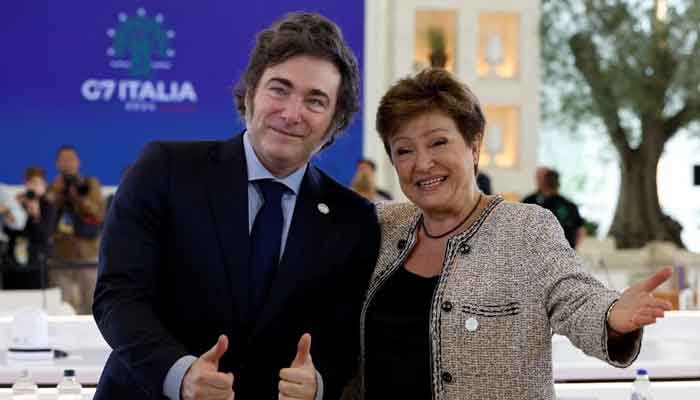Buenos Aires (TDI): Argentina sealed a $20 billion, 48-month Extended Fund Facility agreement with the International Monetary Fund (IMF) on Friday and, in a major policy move ahead of the deal, dismantled key parts of its years-long currency controls and loosened its grip on the peso.
The IMF will disburse $12 billion by next Tuesday, while another $2 billion will become available by June, Reuters reported.
The agreement is likely to help Argentina “catalyse additional official multilateral and bilateral support, and a timely re-access to global capital markets,” the IMF said.
The statement noted that that the program’s core elements include upholding a solid fiscal farmwork and shifting to a more resilient monetary and foreign exchange system, with increased flexibility in the exchange rate.
Earlier, the South American nation’s central bank saidit would undo a fixed currency peg from Monday, letting the peso ARS= freely fluctuate within a moving band between one thousand and fourteen hundred pesos per dollar, versus 1,074 at the close on Friday.
Read More: Pakistan Secures $1.3B IMF Climate Loan
The central bank announced that Argentina will roll back major components of the so-called “cepo” capital controls, which have long limited access to foreign currency.
Companies, from this year, will also be able to repatriate profits out of Argentia, a major demand from businesses that could unlock more investment.
“As of Monday, we will be in a position to end the foreign exchange limitations imposed in 2019 which restrict the normal functioning of the economy,” Economy Ministry Luis Caputo said at a media conference.
Read More: Argentina, OPCW Discuss Chemical Weapons Convention
Libertarian President Javier Milei addressed the nation in a televised speech on Friday night and said that Argentina was “in a better position than ever to face external turbulences.”
However, an IMF staff report on the $20 billion agreement warned that “downside risks remain elevated,” as program implementation could be challenged by rising international trade tensions and, domestically, by the volatility added by the upcoming electoral cycle and fragile social conditions.
Farkhund Yousafzai is an Associate Editor at The Diplomatic Insight.



